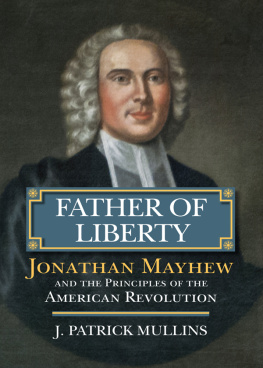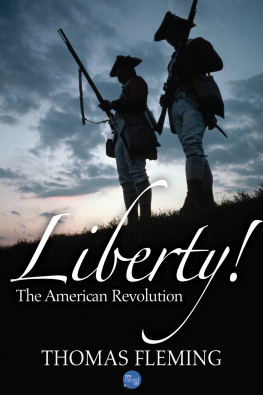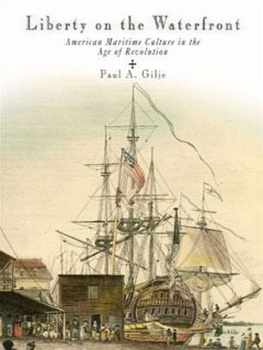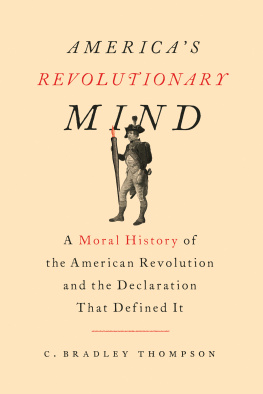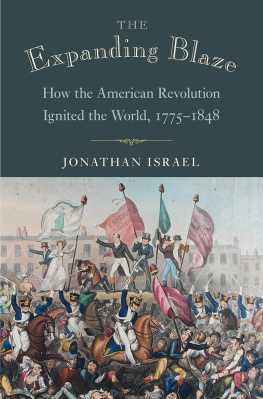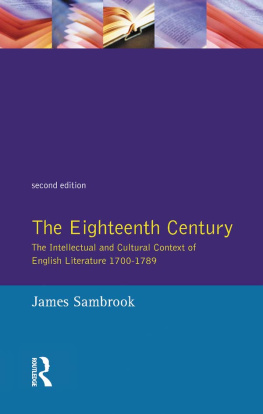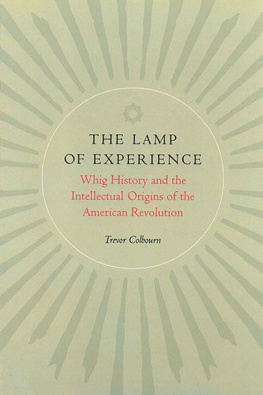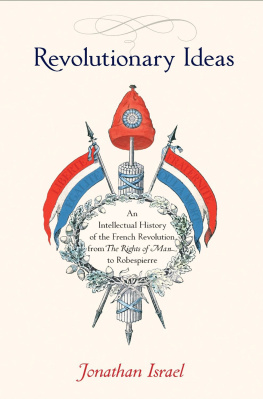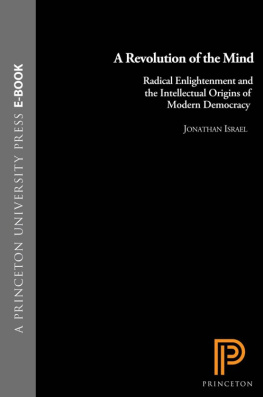2017 by the University Press of Kansas
All rights reserved
Published by the University Press of Kansas (Lawrence, Kansas 66045), which was organized by the Kansas Board of Regents and is operated and funded by Emporia State University, Fort Hays State University, Kansas State University, Pittsburg State University, the University of Kansas, and Wichita State University
Library of Congress Cataloging-in-Publication Data
Names: Mullins, J. Patrick, author.
Title: Father of liberty : Jonathan Mayhew and the principles of the American Revolution / J. Patrick Mullins.
Description: Lawrence : University Press of Kansas, 2017. | Series: American political thought | Includes bibliographical references and index.
Identifiers: LCCN 2016056650
ISBN 9780700624485 (cloth : alk. paper)
ISBN 9780700624492 (ebook)
Subjects: LCSH: Church and stateUnited StatesHistory18th century. | United StatesHistoryRevolution, 17751783. | Mayhew, Jonathan, 17201766. | ClergyMassachusettsBostonPolitical activity.
Classification: LCC BR516 .M75 2017 | DDC 320.092dc23
LC record available at https://lccn.loc.gov/2016056650.
British Library Cataloguing-in-Publication Data is available.
Printed in the United States of America
10987654321
The paper used in this publication is recycled and contains 30 percent postconsumer waste. It is acid free and meets the minimum requirements of the American National Standard for Permanence of Paper for Printed Library Materials Z39.48-1992.
PREFACE
Father of Liberty is the first book on the politics of Dr. Jonathan Mayhew, pastor of the Congregationalist West Church in Boston from 1747 to 1766 . This work contends that Mayhew was the most politically influential clergyman in eighteenth-century America and the intellectual progenitor of the American Revolution in New England. Among the handful of leaders who set the cultural context for colonial Americas political resistance to British authority in the 1760 s, Mayhew ought to be counted along with Patrick Henry, Samuel Adams, and James Otis. And yet he is little remembered today. The corridor of time between the th anniversary of his death in 1766 and the th anniversary of his birth in 1720 is a fitting moment to reexamine and reassess his historical significance. This book aspires to stimulate a renewal of scholarly and public appreciation for Mayhews contributions to American thought and cultureand for a life of the mind lived always in fierce dissent.
This book does not purport to be an intellectual biography of Jonathan Mayhew, let alone a comprehensive account of his life. As the clergymans protg John Adams remarked in 1818 , To draw the character of Mayhew would be to transcribe a dozen volumes. It is, rather, a study of his political thought and political activism, understood in the context of his personal experiences and intellectual influences, as well as the cultural developments and political events of his time, in New England and the wider Atlantic world. Its object is to analyze and assess Mayhews contribution to eighteenth-century New England political culture in general and to the intellectual origins of the American Revolution in particular.
Father of Liberty is the product of many years of research in primary sources, from microfilmed newspapers to archival documents. I made extensive use of the Jonathan Mayhew Papers, kept in the Bortmann Collection at Boston Universitys Mugar Memorial Library. I found it fruitful to draw upon archives at the Massachusetts Historical Society, Harvard Universitys Houghton Library, and the Huntington Library. My access to and acquisition of the primary and secondary sources for this project relied upon the yeomens work of librarians, library staff, and archivists from these institutions as well as Liberty Fund, Marymount Universitys Reinsch Library, Marquette Librarys Raynor Memorial Library, and the University of Kentuckys Young Library.
The shortcomings of this work are entirely my own, but its merits I must share with the many heads and many hands contributing to its completion. For the manuscripts thorough and insightful review, I am deeply grateful to Rosemarie Zagarri, Chris Beneke, and Colin Nicolson. In various forms and stages of development, this book project benefited from lively conference chats, e-mail exchanges, editorial assistance, critical feedback on chapters, and moral support from several colleagues, among them, Michael Zuckert, Jack P. Greene, the late Pauline Maier, J. C. D. Clark, Joyce Lee Malcolm, Craig Yirush, William W. Freehling, Conrad C. Wright, James Ceaser, Robert A. Ferguson, Michael Winship, Jonathan H. Scott, Hans Eicholz, Robert G. Ingram, C. Bradley Thompson, Edward Stringham, Thomas G. West, Holly Brewer, Brad Jarvis, Paul Teed, Suzanne Carson, and Amanda Bourne. The late, incomparable, and much-missed Lance Banning directed much of the research on which this monograph is based, and to him I will always remain in debt.
During his tenure as director of the University Press of Kansas, Charles Myers also served as acting editor for the American Political Thought series, carrying on the brilliant legacy of Lance Banning and Wilson Carey McWilliams. Chuck embraced my Mayhew project from the start and pushed for it every step of the way. He did a magnificent job, and I thank himas well as Joyce Harrison, Mike Kehoe, Larisa Martin, Karl Janssen, Martha Whitt, and the rest of the editorial, marketing, and production teams at the University Press of Kansasfor turning this project from an idea in my mind to the book in your hands. I appreciate financial support for my research, writing, and revision of the book from Marymount University, the University of Kentucky, and Liberty Fund. For their encouragement, I am grateful to my friends, Jack F. Wakeland, Margaret Tseng, and Charles R. Smith, as well as my parents, Donald W. Marshall, the late Nancy D. Marshall, and John P. Mullins, Jr., my first history teacher, who showed me the power of ideas to move the world. I am grateful to my stepdaughter, Shir Bloch, for enduring patiently my pontifications about Jonathan Mayhew over most of her lifetime. And thanks goes to my son, Jonathan Henry Bloch-Mullins, for always giving my spirits a lift when I needed it mostand for being the only member of the family willing to join me, with his ingenuous gusto, in a hearty toast and three stout huzzahs to the th anniversary of the repeal of the Stamp Act. And, at last, I thank my wife and favorite Marquette colleague, Corinne Bloch-Mullins, for seeing this book through from beginning to end, for always believing in me, and for making life so dear and peace so sweet. She is first in my heart, and my first book belongs to her.
Introduction
On the night of August , 1766 , a number of rude Fellowsin the words of the Boston Gazetterallied around a bonfire on King Street in downtown Boston and formed a torchlit mass of indignation. The crowd divided into two teams, ransacking the private homes of two officers of the British Crown. The mob then re-formed and marched to a three-story Palladian mansion, the home of Thomas Hutchinson, chief justice and lieutenant governor of Massachusetts. An eyewitness, lawyer Josiah Quincy, Jr., documented the riot in a diary entry the following day. As the crowd surged into Hutchinsons house, the lieutenant governor fled with his daughter. Quincy believed that Hutchinsons life would have been forfeit had he not made this narrow escape. The Rage-intoxicated Rabble, Quincy recalled, swept into the house and destroyed or stole everything of value. Over hours of steady work, the rioters pulled down interior walls and tore its stately cupola from the roof. They left a gutted shell behind and dispersed with the approach of daylight. Historian Bernard Bailyn described the Hutchinson Riot as more violent than any yet seen in America, more violent indeed than any that would be seen in the entire course of the Revolution. In the weeks that followed, mobs followed Bostons example in cities up and down the Atlantic seaboard, from an assault upon the royal governors home in New York City to raucous street rallies in Charleston. The Hutchinson Riot was the spark that set Britains Thirteen Colonies on fire, turning American opposition to the Stamp Act of 1765 from a genteel affair of legislative petitioning into a violent popular uprising with the potential for armed revolution. Publicly, Lieutenant Governor Hutchinson blamed the attack on mistaken gossip that he was a supporter of the hated new stamp tax. Privately, he blamed Jonathan Mayhew.

